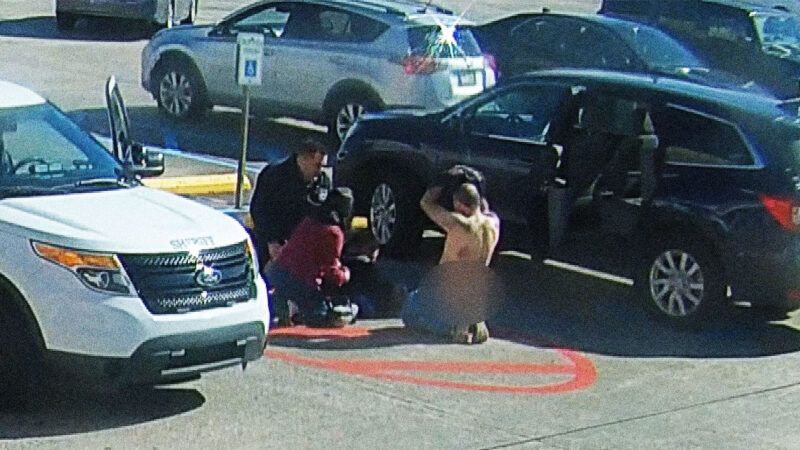Police Killed an Autistic Teenager. Then They Filed Search Warrants Looking for Past Bad Behavior.
After Eric Parsa's death at the hands of Louisiana police, officers received approval for search warrants of the teenager's "incidents of violence or documented behavioral reports" at school.

After Louisiana sheriffs killed a disabled teenager, they filed unconstitutional search warrants in an attempt to find unflattering information on the 16-year-old, new allegations in an ongoing lawsuit claim.
Eric Parsa was killed on January 19, 2020, after suffering from "sensory overload" in the parking lot outside a New Orleans-area laser tag center. Parsa, who was "severely autistic," obese, and nonverbal, became distressed and began slapping himself on the head. Later, he slapped his father and bit him. According to the suit, an employee of the laser tag center asked the family if they wanted assistance from police. After the family agreed, the police were called.
According to NBC News, when Parsa slapped one of the Jefferson Parish Sheriff's Office (JPSO) deputies who arrived on the scene, the officer wrestled Parsa to the ground, sat on him, and placed him in a chokehold as his parents watched. After nine minutes, Parsa became unresponsive and was taken to a local hospital, where he was pronounced dead.
In the days following Parsa's death, police sought several search warrants related to Parsa—specifically aimed at examining the teenager's in-school behavior. According to recent reporting from The Lens, a New Orleans-area public interest newsroom, police seemed intent on finding past examples of Parsa's violent behavior, specifically asking his school for "all incidents of violence or documented behavioral reports," including a specific request for surveillance footage "relative to any outbursts or violent behavior." Officers even requested that they be allowed to examine certain parts of the school itself for "generalized law enforcement inspection" and "acquisition of documentary photographs." Police also seized Parsa's medical records that were held by his pediatrician.
Despite the legal requirement that warrants only be approved when there is probable cause for a crime, judges in Jefferson, St. Charles, and Orleans granted the warrants. The Lens reports that "none of the affidavits for the warrants that were sought related to Parsa's death identified a specific crime that JPSO was investigating. On some of the warrants, where a crime could have been listed, JPSO wrote 'No charge at this time.' On others, it was left blank."
While deputies later defended the warrants as necessary to conduct a full investigation of the incident, several legal experts weren't convinced. "I'm unclear on why a judge would have signed them," Lucia Blacksher Rainier, a Tulane University Law School professor told The Lens "They knew that they had violated the law and they were trying to find information they could point to that would somehow justify their violation of the law…. That is my guess."
"What is the purpose of the police looking into all this information besides trying to come up with a post-hoc justification for why killing this child was appropriate?" Nora Ahmed, legal director for the American Civil Liberties Union of Louisiana, told The Lens.
Parsa's parents, who sued police in 2021, are making further allegations of wrongdoing in their suit against the JPSO. They claim that the officers violated the Fourth Amendment by seeking warrants into Parsa's past behavior without probable cause in an attempt to find a post hoc justification for the boy's killing.
"JPSO's admitted use of criminal search warrants without even the suspicion of a crime – much less probable cause – indisputably violates the Fourth Amendment," lawyers for Parsa's parents wrote to a Louisiana federal judge.
While it is unclear whether the Parsa family's lawsuit will prevail, the actions alleged by Jefferson Parish police officers are nonetheless unnerving.


Show Comments (80)